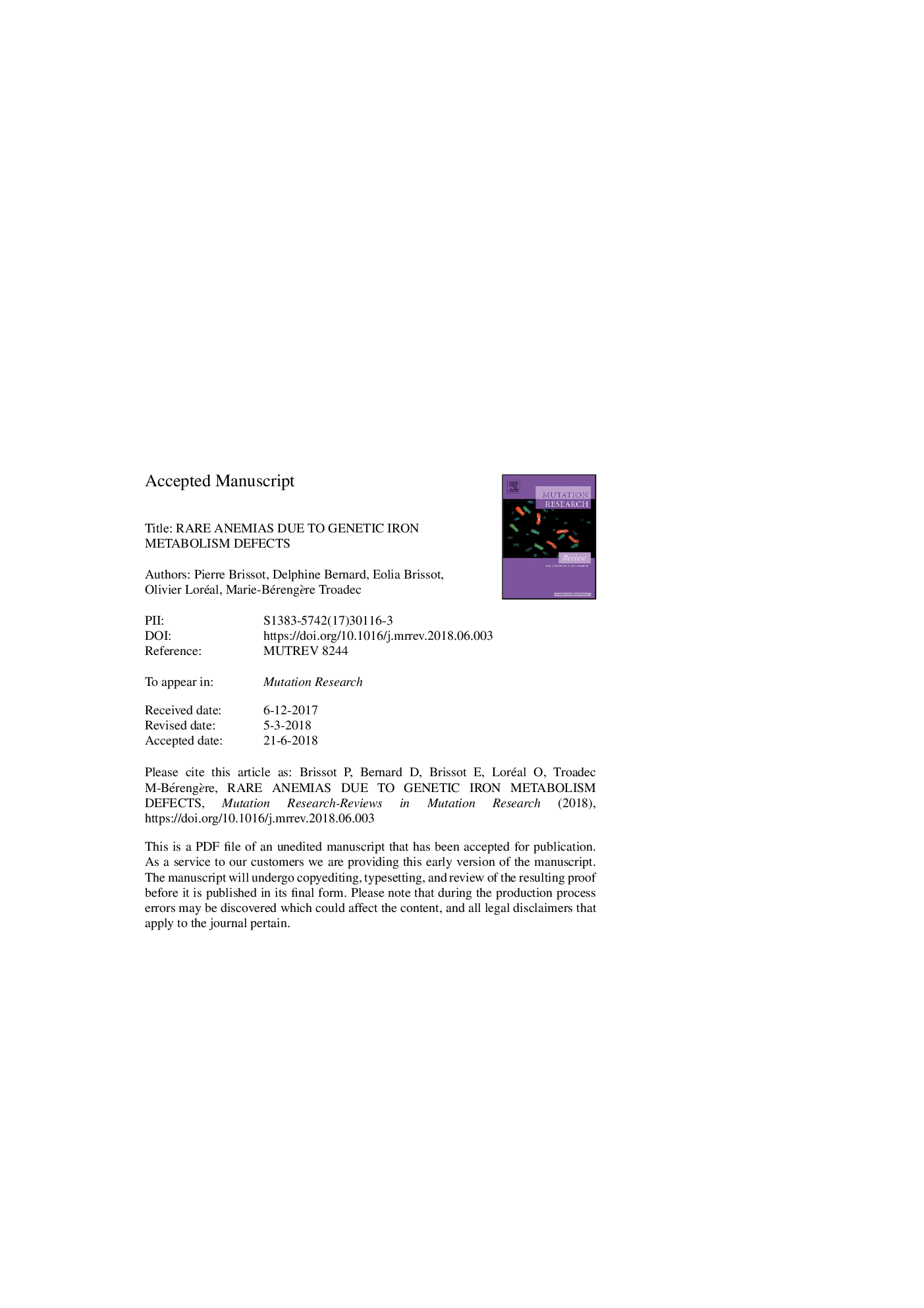| کد مقاله | کد نشریه | سال انتشار | مقاله انگلیسی | نسخه تمام متن |
|---|---|---|---|---|
| 8456682 | 1548738 | 2018 | 45 صفحه PDF | دانلود رایگان |
عنوان انگلیسی مقاله ISI
Rare anemias due to genetic iron metabolism defects
ترجمه فارسی عنوان
کم خونی ناشی از نقص متابولیسم ژنتیکی آهن
دانلود مقاله + سفارش ترجمه
دانلود مقاله ISI انگلیسی
رایگان برای ایرانیان
کلمات کلیدی
موضوعات مرتبط
علوم زیستی و بیوفناوری
بیوشیمی، ژنتیک و زیست شناسی مولکولی
تحقیقات سرطان
چکیده انگلیسی
Anemia is defined by a deficiency of hemoglobin, an iron-rich protein that binds oxygen in the blood. It can be due to multiple causes, either acquired or genetic. Alterations of genes involved in iron metabolism may be responsible, usually at a young age, for rare forms of chronic and often severe congenital anemia. These diseases encompass a variety of sideroblastic anemias, characterized by the presence of ring sideroblasts in the bone marrow. Clinical expression of congenital sideroblastic anemia is either monosyndromic (restricted to hematological lineages) or polysyndromic (with systemic expression), depending on whether iron metabolism, and especially heme synthesis, is directly or indirectly affected. Beside sideroblastic anemias, a number of other anemias can develop due to mutations of key proteins acting either on cellular iron transport (such as the DMT1 transporter), plasma iron transport (transferrin), and iron recycling (ceruloplasmin). Contrasting with the aforementioned entities which involve compartmental, and sometimes, systemic iron excess, the iron refractory iron deficiency anemia (IRIDA) corresponds to a usually severe anemia with whole body iron deficiency related to chronic increase of plasma hepcidin, the systemic negative regulator of plasma iron. Once clinically suggested, these diseases are confirmed by genetic testing in specialized laboratories.
ناشر
Database: Elsevier - ScienceDirect (ساینس دایرکت)
Journal: Mutation Research/Reviews in Mutation Research - Volume 777, JulyâSeptember 2018, Pages 52-63
Journal: Mutation Research/Reviews in Mutation Research - Volume 777, JulyâSeptember 2018, Pages 52-63
نویسندگان
Pierre Brissot, Delphine G. Bernard, Eolia Brissot, Olivier Loréal, Marie-Bérengère Troadec,
